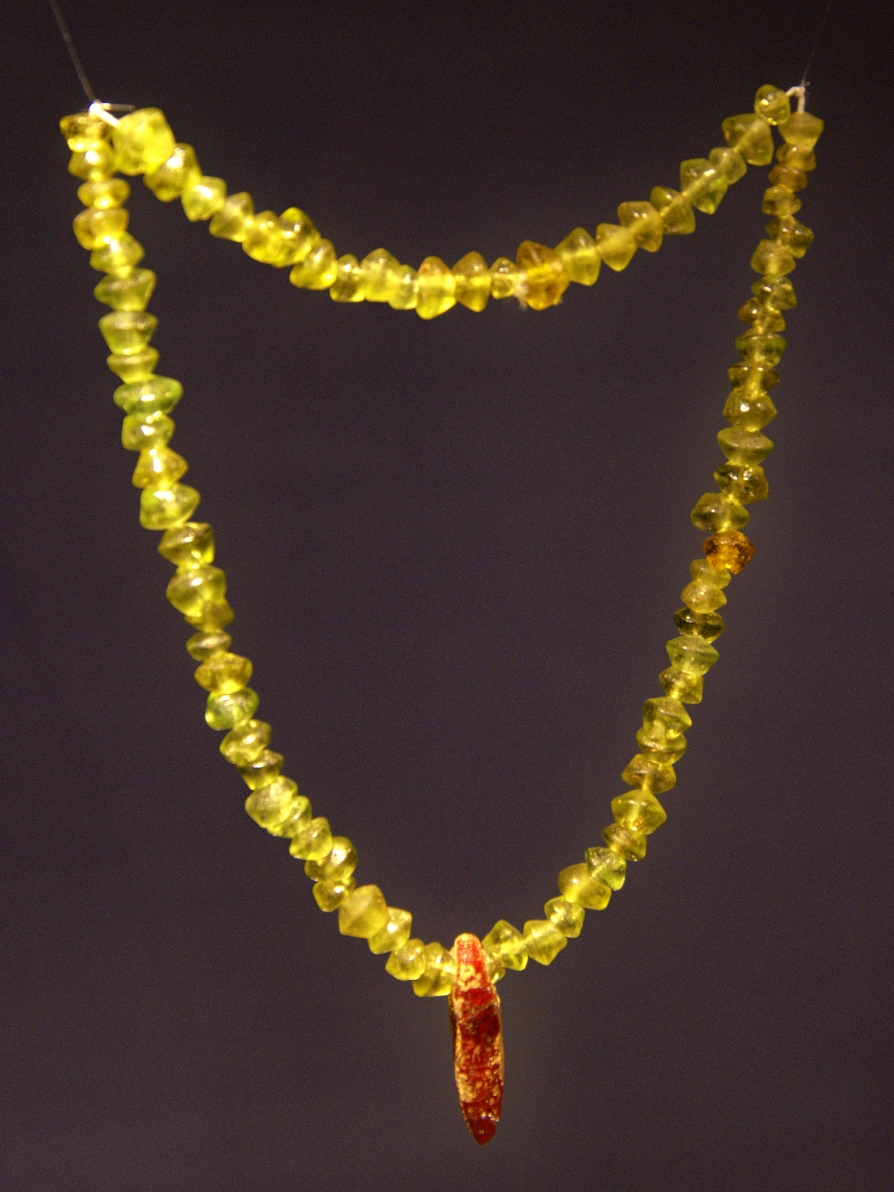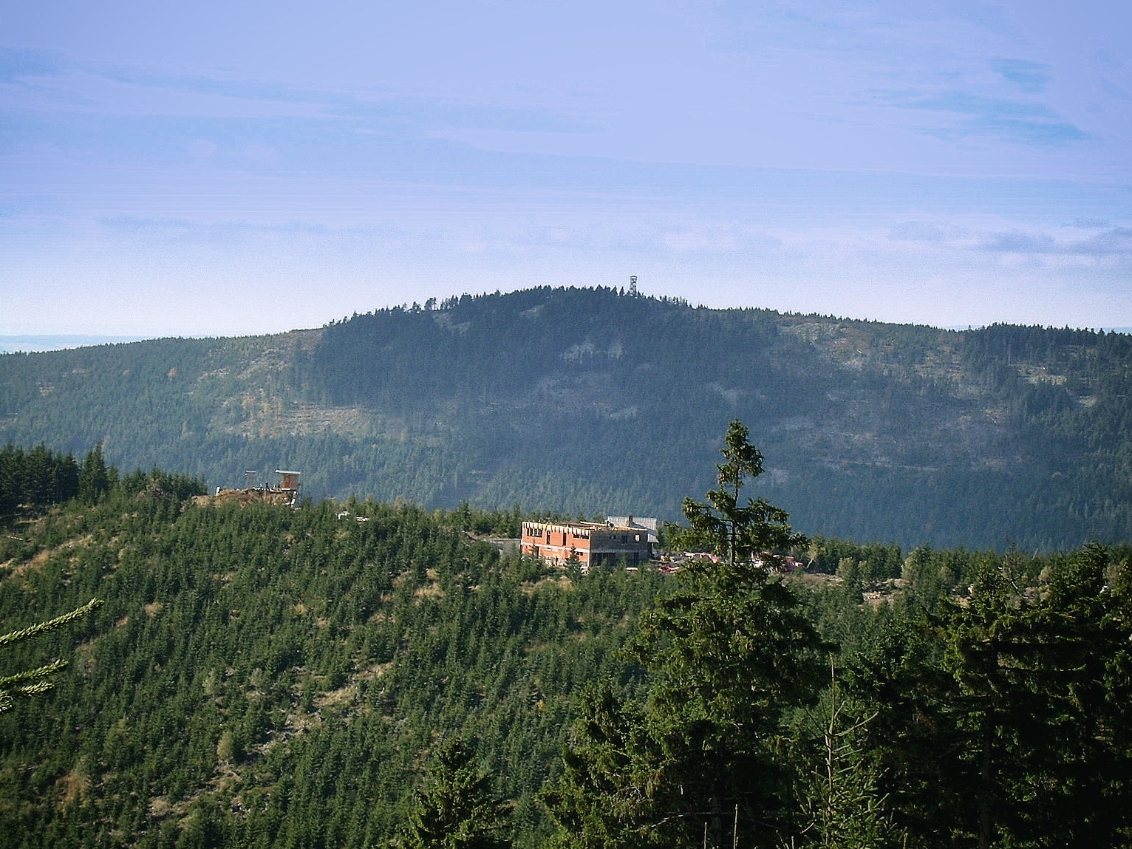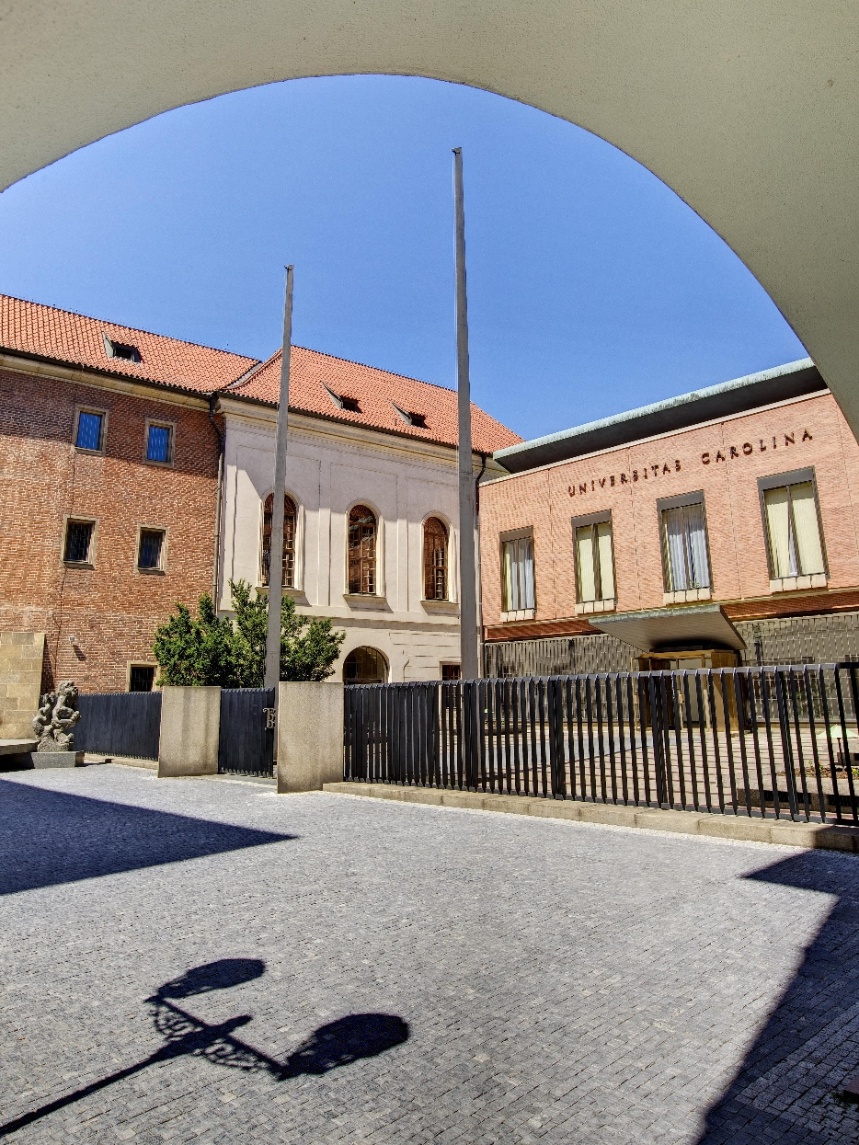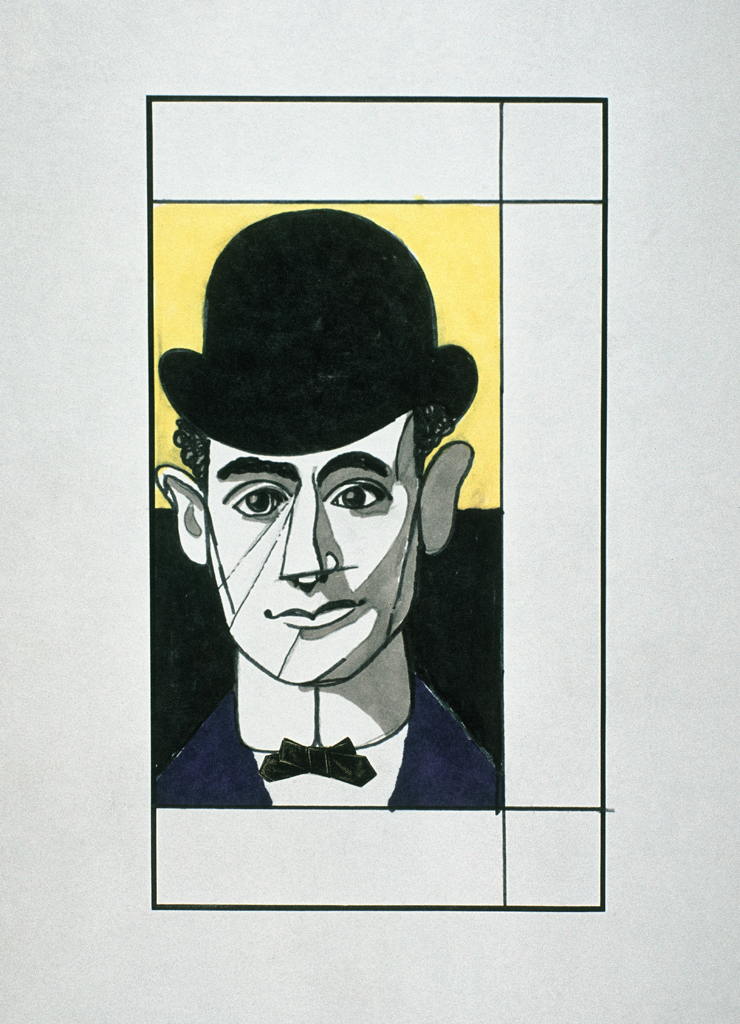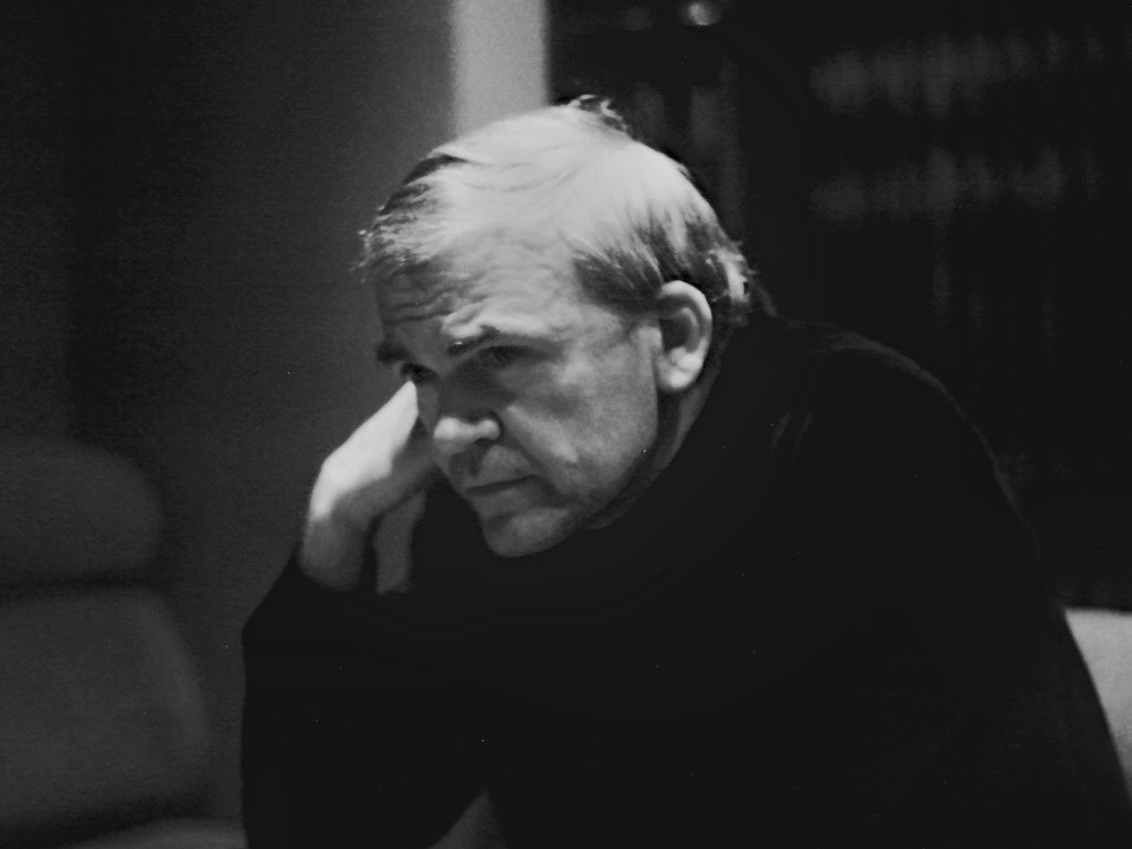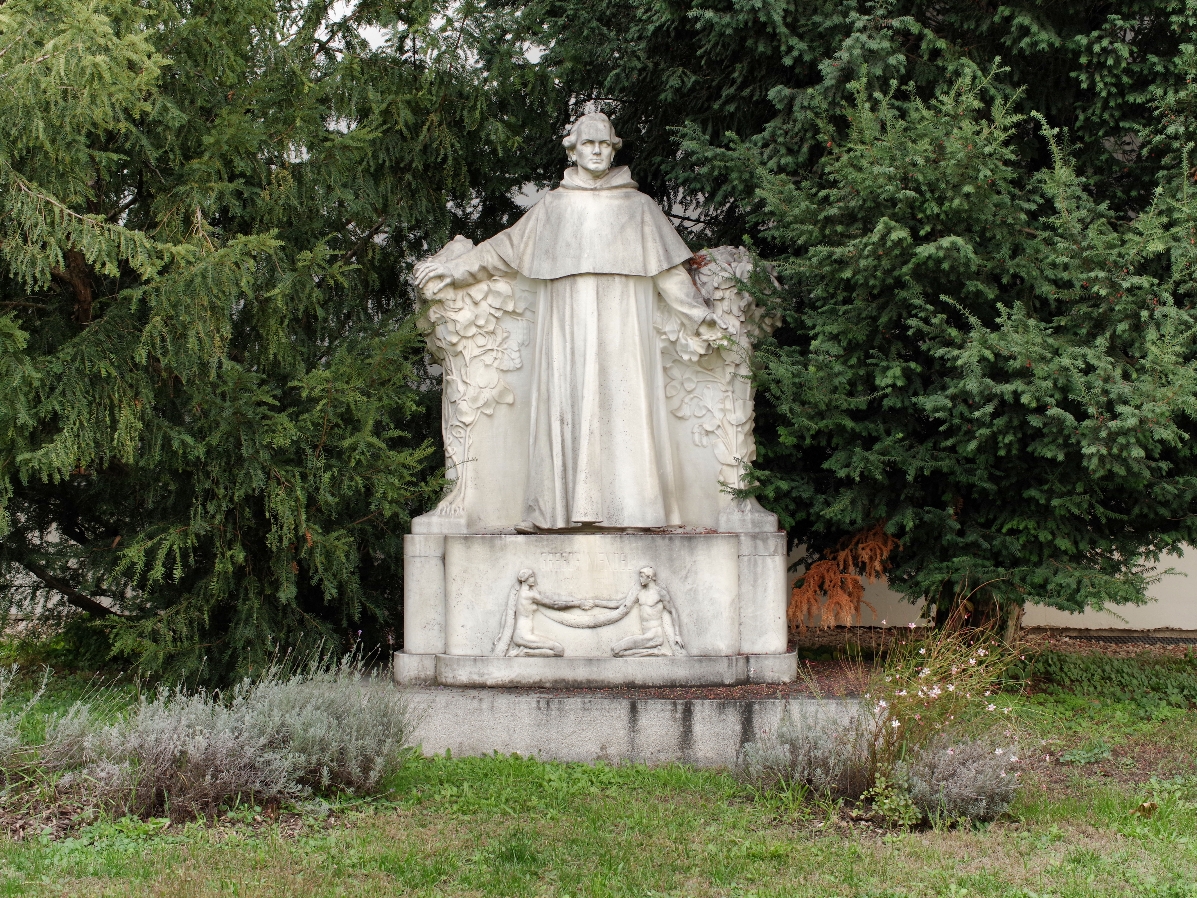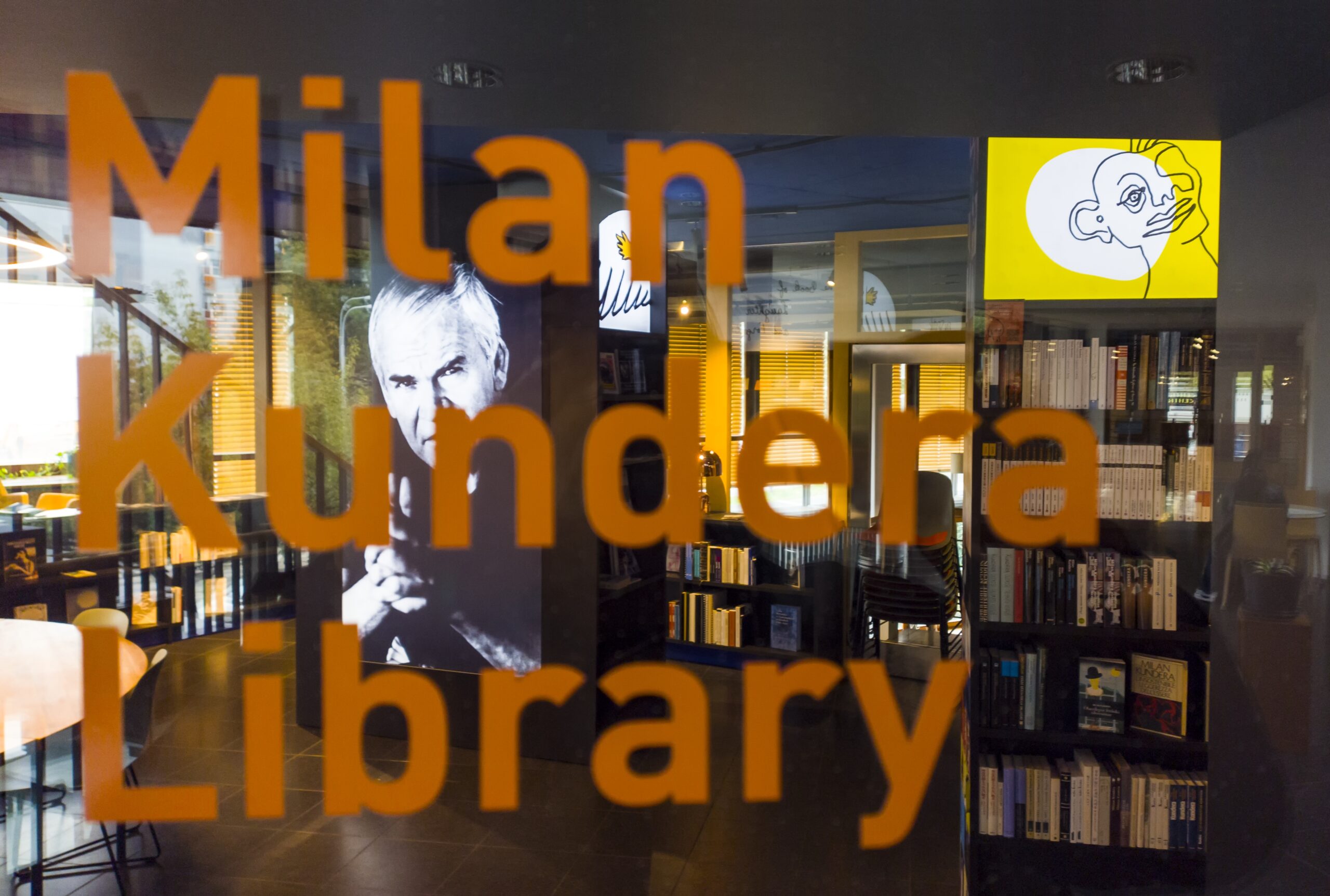
The intersection of Europe – Brno, Moravian LIbrary – Milan Kundera Library
Czech figure of the „Transfer of the culture” topic
The Moravian Library in Brno has recently opened the new Milan Kundera Library, where readers can find the works of the Czech writer published in 50 different languages. Kundera, who lived half of his life in Paris, was not only a Czech writer of European proportions, but he also dealt with the idea of Central Europe in his works. Central Europe, and the Czech Republic with it, can be seen as an imaginary crossroads of Europe, both geographical, cultural or intellectual.
The Czech territory was a geographical crossroads already in the prehistoric period. The Amber Route, an important trade route leading from the Baltic Sea to the Mediterranean, passed through this area. It was inhabited in prehistoric times, as indicated by the evidence of the remains of prehistoric settlements in Pavlov or Dolní Věstonice, which are still preserved today. There is even a river junction here – the watershed of three European rivers Elbe, Oder and Danube. In the middle of these three streams, flowing in their own directions into the North Sea, the Baltic Sea and the Black Sea, rises the peak Klepáč, situated on the Czech-Polish border. Each of these prehistoric connections can be traced and remembered even today. The traces they have left behind show a long tradition of intersection of different trends and movements, that today’s Czech lands have carried with them even in the historical period.
The still living monument of the crossroads of knowledge is the still functioning Charles University, the oldest university in Central Europe. Czech personalities other than the already mentioned Milan Kundera resonate in European cultural history. The famous writer Franz Kafka, born in Prague, and the geneticist Gregor Mendel, who worked in Brno, can be pointed out. All of these personalities have left their imprints in space-time, monuments that remind us of their life and work to this day.
Further reading:
Bolina, Pavel – Martínek, Jan – Cílek, Václav – Šlézar, Pavel, Jantarová stezka. Praha 2022.
L. Donskis, Yet Another Europe after 1984: Rethinking Milan Kundera and the Idea of Central Europe, Amsterdam 2012.
Kundera, Milan, A kidnapped west: the tragedy of Central Europe, London 2023.
Kavka, František – Petráň, Josef (eds.), A history of the Charles University, Vol. 1-2, Prague 2001.
Facts


